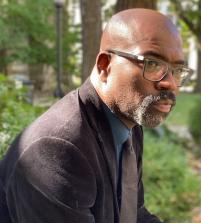
Moral Indignation and Reflections on Evangelicalism
The embrace of Herschel Walker by Georgia's white evangelicals reveals the betrayal of values once publicly espoused.
About a month ago, self-described southern Baptist and MSNBC commentator, Joe Scarborough, referred to his fellow white southern Baptist friends as “our tribe.” These were friends with whom he had grown up and from whom he had become alienated because of his opposition to Donald Trump’s presidency. This is a new development because white southern Baptists often speak of their preaching the Christian Gospel in universal terms, and certainly do not call themselves members of a tribe. Along with other anti-Trump Republican evangelicals, Scarborough was outraged over the moral degeneration of white evangelicals in their transactional support for the former president and his brutish, harsh style.
This kind of situational morality is directly related to white evangelicals’ embrace of Herschel Walker as documented in Elizabeth Dias’s recent New York Times article. She notes their fervent support of Walker’s candidacy for the Senate in Georgia, despite his abandonment of and refusal to acknowledge several of his children and strong evidence that he paid for his ex-girlfriend to have an abortion. Pastor Jentezen Franklin, one of Trump’s top evangelical supporters, expressed his steadfast backing of Walker in these words: “I always vote for policy more than personality.” This is an astonishing admission given how frequently white evangelicals have touted personal character above all else.
Now Walker is the man for Georgia’s white evangelicals and he’s part of their tribe. Evangelicals pray for God’s protection over him to shield him from the forces of evil and to protect themselves from any outside criticism. In so doing, they have embraced a form of tribalism that is not humbled by its partial perspective and potentially distinct contributions to the common good, but rather one whose leaders use this insider status (with a self-reinforcing media ecosystem) to delegitimize all external criticism as fake, partisan, and therefore unworthy of consideration. This allows them to stick with Walker no matter what his past and its relationship to his Senate campaign. Never mind that Walker is a man who is regularly paraded with all his dirty laundry before a national audience in service to the power and aspirations of white evangelicals, despite the evident cruelty and irony of their use of this prominent black man to fulfill all the standard racist tropes among white conservatives of the black male who abandons his children, has tenuous ties to his sexual partners, engages in domestic violence, and whose sole area of expertise and genuine talents are his achievements in a particular sport (football).
This affected me personally. I am not an evangelical, but I grew up in the South in a deeply Protestant culture, attended an evangelical seminary, and wrote my master’s thesis on white evangelical Protestants and the Civil Rights movement. I have some sense of the ethos, aspirations, and language of evangelicalism because I have had friendships and extensive conversations with evangelicals. As a black man who has spent years reading and hearing a conservative critique of the “black underclass,” this hurts intensely to see this flagrant embrace of a man who embodies all that they have railed against for years. As much as I do not want to regard Walker as a victim, in a way he has become a pawn for a cynical and inward-looking religious tradition that has lost its moral bearing in its singular will-to-power.
As a scholar of American religion, for a complicated set of reasons, I have tried to shun formal moral commentary on contemporary religious life in the U.S. Yet, I feel compelled to speak in autobiographical terms and on normative grounds about this disturbing development. I have been thinking along with my colleague Richard Miller in his new book, Why Study Religion? about indignation and ways “to think normatively about abuses of power by those in positions of religious authority and leadership.” Miller’s work has helped me to make explicit what has heretofore been inchoate. The broader debate about normativity and moral judgment in religious studies has taken so many forms that I cannot engage that here. I simply note how much I have wanted to shy away from these contentious debates in my formal scholarship, but reading Miller has offered me a theoretical framework for my mostly personal critique of white evangelicals’ current moral posture.
Miller argues that “ethics is prior to epistemology,” that the experience of (moral) incongruity that one feels arises from a sense that something has gone awry, and that this disconnect gives rise to the need to give an account of what has transpired. Miller asserts that “the feeling of indignation lies at the heart of why we seek to render” this disconnect or disruption of ethical norms intelligible. My attempt to give an account of my reaction is to make explicit what Thomas Lewis calls the inevitability of normativity in the humanities and religious studies. I wish to render more clearly my personal response to and moral offense by evangelicals’ political calculations. I also find myself thinking with Miller about what he calls “moral and affective responses” to the study of religious traditions. Here I focus on the first part of Miller’s claim that “judgment is prior to theory,” though a fuller consideration would take seriously the spectrum between judgment and theory Miller explicates. I offer these brief comments as a reflexive exercise and to provide the kind of social criticism that “exposes gaps between professed ideals and lived, social realities” of religious traditions. These reflections express, to some degree, my connectedness and vulnerability to those within or adjacent to evangelicalism.
I hope my remarks are not taken as another example of a scholar portraying evangelicals as an “other.” This essay is written with intense sadness rather than distance, with that awful feeling that one has when witnessing the corruptions of power driven by fear and rage. It is to articulate that uneasiness when one sees vividly the cruelties to outsiders that religious sanctifications of insiders make possible and the dehumanizing forces that can be unleashed by religions. Perhaps too this reflection will be a reminder not only that, as Miller notes, religious traditions should be held “accountable to norms and values” that they might not sacralize, but also the ways in which through quests for power and domination they can betray in conspicuous ways the values they once publicly espoused.
Featured image by Kaleb Nimz on Unsplash


